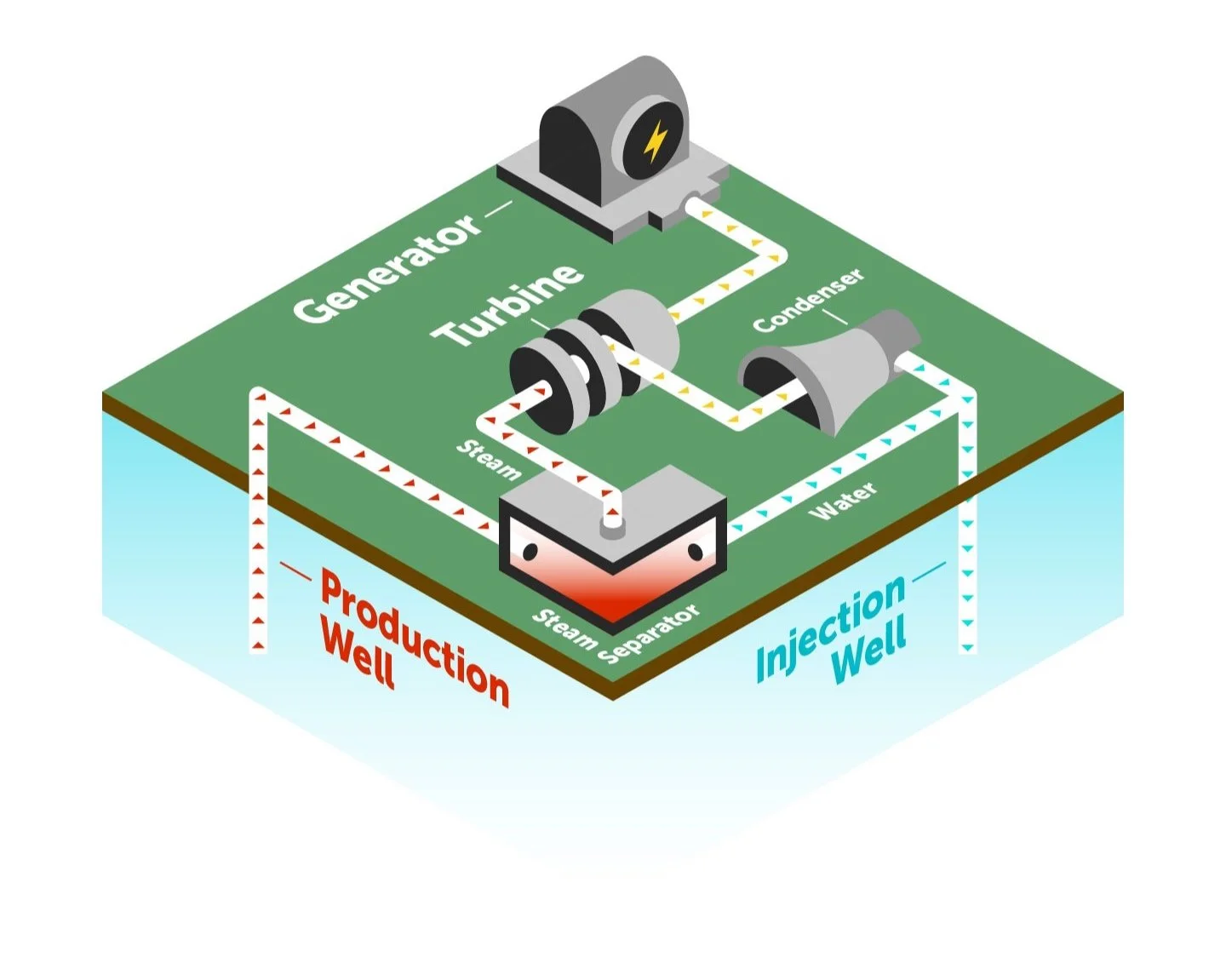Baseload Britain is an independent, British company that
supports the national implementation of a geothermal sector that can
supply the UK with green, renewable, and sustainable baseload power.
Renewable
Geothermal power plants harness the heat stored deep inside the earth. The electricity produced is carbon-free, and the water is pumped back into the ground so the earth is not depleted of any of its natural resources.
It is a non-polluting and environmentally friendly way of generating electricity, that has no harmful waste products.
Reliable
Geothermal power is a consistent source of energy, that does not rely on the wind or the sun, and is available all year round, at all times of day, and in any weather condition.
Its source is the unlimited heat generated by the earth’s core, and so does not rely on pipelines or international trade.
Affordable
Whilst the upfront costs of building a geothermal plant can seem high, they are nothing in comparison to the price of a nuclear power or coal plant.
After initial construction, the maintenance and upkeep costs are minimal, providing us with cheap and completely carbon free energy for the long term.
Binary
This form of geothermal power plant is used when the water in a reservoir is not as hot as necessary for binary, and can operate from temperatures of 100 degrees celsius upwards. The hot water from the earth is used to boil a working fluid - usually an organic compound that has a low boiling point.
The working fluid passes through a heat exchanger, where it is vaporised and turns the turbine. The water is then reinjected back into the geothermal reservoir, where it is reheated.
Flash
Flash steam are the most common types of geothermal power plants. They require an underground water reservoir with temperatures of 180 degrees Celsius and over. A well is drilled into it, and water rises to the surface under its own pressure.
As it rises, the pressure decreases and some of this water boils into steam which then powers a turbine and generator. The steam is then condensed back into water, and is reinjected back into the reservoir, making this method renewable and sustainable.
Geothermal in the UK
If the UK were to deliver 12 geothermal plants per year for the next 30 years, we could generate 15,000 GWh of heat, and 400 GWh of electricity annually by 2050.
Geothermal technologies currently deliver less than 0.3% of the UK’s annual heat demand.
If the UK were to deliver 12 geothermal plants per year for the next 30 years, we could generate 15,000 GWh of heat, and 400 GWh of electricity annually by 2050.
Investment on this scale would create over 10,000 jobs directly, and 25,000 jobs indirectly.
Southampton currently operates the only direct-use geothermal scheme, and since it’s operation began it has saved 131,564 tonnes of CO2 emissions.
Geothermal power is also cheaper, with operating and maintenance costs ranging from only £0.01 to £0.02 per kWh.
The UK’s deep sedimentary basins and areas of heat producing granite have above average geothermal gradients, meaning that they could be exploited for shallower and cheaper heat.
Geothermal plants have low operating costs and high capacity factors of >95%.
Sedimentary basins are found throughout the UK, mostly at heats between 40 degrees C to over 60 degrees C.
The geothermal heat alone found in these basins could provide the UK with our entire heat demand two hundred times over.



